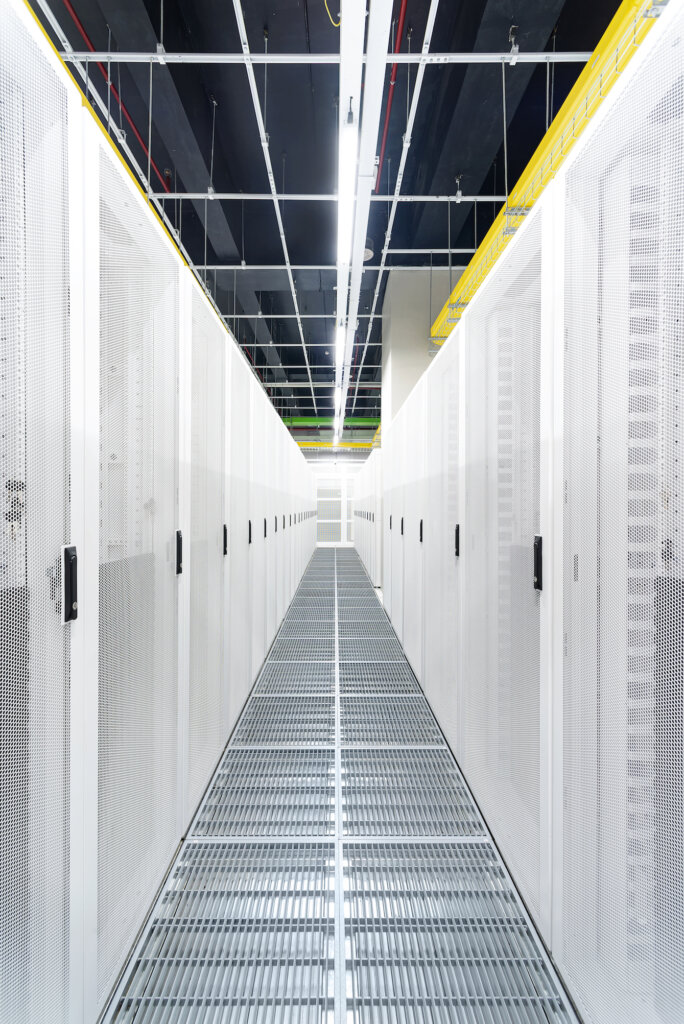
The Indonesian data center market has expanded tremendously in the last couple of years. (Image – Shutterstock).
EDGE DC hoping to influence Indonesian data center market
- The Indonesian data center market has expanded tremendously in the last couple of years.
- EDGE DC is building EDGE 2, another data center that is capable of supporting the demand for modern AI workloads.
- EDGE DC data centers are located near internet exchanges, providing better latency capabilities.
The Indonesian data center market is a fast-growing sector that is driven by the increasing internet economy, digital transformation, and demand for cloud services in the country. According to various sources, the market size is expected to reach around US$4 billion by 2028, with a compound annual growth rate (CAGR) of 14-17%.
The Indonesian data center market is dominated by Tier 3 data centers, which offer high availability and redundancy, but Tier 4 data centers are also emerging as the fastest-growing segment. Some of the key players in the market include EDGE DC, SpaceDC, Smartfren, G42, NTT, Telkom Sigma, and Biznet.
Indonesia’s data center market is also attracting investments from global hyperscale cloud providers, such as Google, Amazon, Alibaba, and Microsoft, who are expanding their presence and capacity in Indonesia. The government of Indonesia is also supporting the development of the data center industry by improving the connectivity, data sovereignty, and digital infrastructure in the country.
EDGE DC hoping to make an impact in the Indonesian data center market

Stephanus Oscar, CEO at EDGE DC.
According to Stephanus Oscar, CEO at EDGE DC, the Indonesian data center market has expanded tremendously in the last couple of years, especially after the COVID-19 pandemic. Data centers in Indonesia are located in several clusters around the capital, each catering to the needs of the industry.
“The demand for data centers in Indonesia is certainly driven by the hyperscalers. Currently in Indonesia, we already have all the big cloud providers. This includes AWS and Google. We have Microsoft coming in as well as the Chinese cloud players, Huawei, Alibaba and Tencent. This itself is going to create the demand for data centers.
At the same time, the rise of generative AI is also driving the demand for data centers. Our data centers are designed for high-density and super-high-density workloads. Our new EDGE 2 data center will be well positioned to house that kind of AI workload in Indonesia,” said Oscar.
Located in downtown Jakarta, EDGE DC operates in close proximity to two major internet exchanges, offering easy availability and low latency connectivity. Since establishing EDGE 1, the data center is now fully sold out, running at 100% capacity. As such, the company announced plans to build another site, called EDGE 2. Both data centers will be interconnected so that customers can rely on both data centers to run their workloads.
“The design of our EDGE 2 data center is built with sustainability in mind. We are partnering with Nortek, a cooling company to bring StatePoint Liquid Cooling (SPLC). An evaporative cooling technology, SPLC will reduce the PUE to below 1.3, which is quite market-changing here in Indonesia. This is the first time the technology is deployed in Indonesia,” commented Oscar.
PUE is the ratio of the total amount of energy used by a computer data center facility to the energy delivered to computing equipment. PUE is the inverse of data center infrastructure efficiency. While an ideal PUE is 1.0, this would still depend on local temperatures. For tropical countries in Southeast Asia, below 1.3 would be just right.

EDGE 2 data center will be well positioned to house that kind of AI workload in Indonesia.
Availability and low latency will be crucial in 2024 for data centers
In 2023, data centers in Singapore experienced issues that led to the disruption of several services in the country. While the problem has been resolved, the damage caused by the disruption led to companies relooking their data center strategies.
“There are a thousand different things that can happen in a data center. And you only need one incident, to trigger everything. You always need to be prepared for the worst that can happen. In EDGE 1, we have almost three years of operation and zero downtime. So let’s keep it that way. To ensure continuous power supply, we are working with PLN, so in the event that either source gets an outage, then there’s 100% backup. And in terms of the design, we design the data centers to make sure that everything is backed up. We also conduct incident drills to ensure that in the event of such incidents, the team knows what to do,” explained Oscar.
In Indonesia, data center outages are not common. However the country is prone to natural disasters that can disrupt power flow and such. Apart from these, data centers need to have 100% availability and be able to provide the lowest latency possible to their customers.
For Oscar, this is an area in which EDGE DC is capable of serving best to its customers. EDGE DC launched EPIX or Edge Peering Interconnect, which is an advanced interconnection solution to power digital acceleration. As EDGE 1 is located near two internet exchanges, it allows customers to have reliable connections every time, and always achieve low latency and high throughput. EPIX allows the interconnection of entities in an IXP, which is to connect with a single port.
“We provide an SLA-based internet exchange and we also provide high capacity base connection. We provide up to 100G, or even some up to 400 G type of connection. Latency has been very important for our customers and it’s very important for us to deliver it. And with the help of Indonet as a network service provider, all this comes into one single picture. We have the data center, we have the connectivity, and we have the internet exchange. Our customers can just select which offerings that are required for them,” added Oscar.
Looking into the future, Oscar believes that Indonesia is poised to be one of the leading data center markets in the region. With the country’s population and demand for more digital services, he believes the correlation will fuel data center growth in the country.
READ MORE
- 3 Steps to Successfully Automate Copilot for Microsoft 365 Implementation
- Trustworthy AI – the Promise of Enterprise-Friendly Generative Machine Learning with Dell and NVIDIA
- Strategies for Democratizing GenAI
- The criticality of endpoint management in cybersecurity and operations
- Ethical AI: The renewed importance of safeguarding data and customer privacy in Generative AI applications




